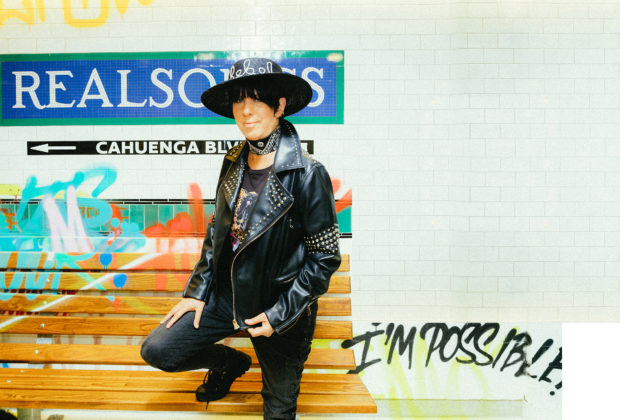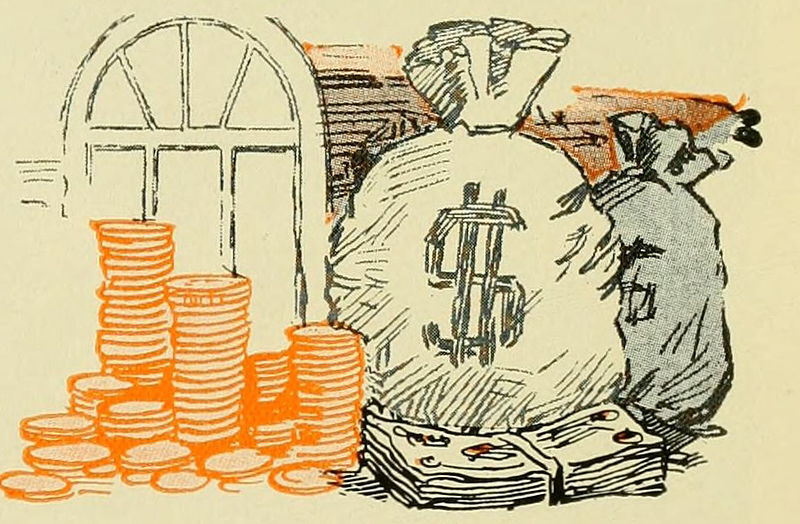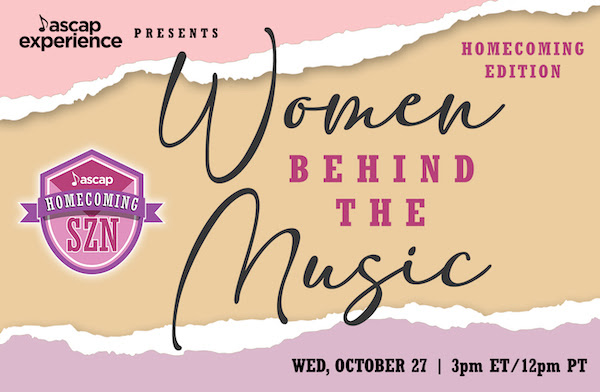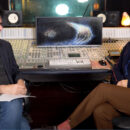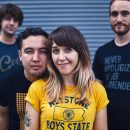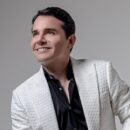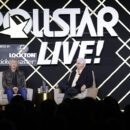Since her first breakout chart successes in the mid-‘80s, songwriter Diane Warren has sustained an extraordinarily enduring career, penning colossal chart hits and contributing signature songs to epic Hollywood films. Pop, country, R&B, Latin, and cinema: across a historic span of decades, genres, and mediums, the indelible songs of Diane Warren remain remarkably present.
The sole owner of Realsongs, a hugely successful publishing company that occupies a historic building in Hollywood, she still maintains her legendarily cluttered writing room nearby, dubbed “The Cave.” This shambolic enclave gives title to her first-ever studio album, The Cave Sessions Vol. 1, from Di-Namic Records/BMG. The project features a repertoire of Warren’s songs performed by an eclectic cast of notable artists ranging from John Legend to Luis Fonsi; Ty Dolla$ to Celine Dion.
In 2021, Warren’s lyrics and melodies continue to be interpreted by the most distinctive voices in music. In this exclusive interview, MC speaks with the expressively candid songwriter about how she matched songs with artists on her latest project, her 12 Academy Award nominations, how she stays current, and her mission of saving cows from the slaughterhouse.
Music Connection: We have a new definition of Diane Warren. With The Cave Sessions Vol. 1, you are not only the songwriter but also now a musical casting director. How did this project come about, and why at this particular moment in time?
Diane Warren: I had been thinking about something that DJ/producers like DJ Khaled, Mark Ronson, David Guetta, Kygo and Calvin Harris do, they curate albums of songs and artists. I thought, “A songwriter hasn’t done that? Why can’t it be me?” I have always been a songwriter in all genres. I thought what a cool thing to do, to take a group of songs I love and cast them––maybe throw some things into the mix that are weird, in different combinations. It’s like a “Greatest Hits Album to Be.” I wanted everything to sound like a single.
MC: Unreleased songs languishing unreleased in the vault were also an impetus, correct?
Warren: I had one song John Legend did called “Where is Your Heart.” It was so frustrating. He did the song and he said he was going to use it, and I’d give it to other artists and I’d tell him, but he kept saying he was going to release it, but he never did. Anyone who hears that song and his voice can’t help but be blown away. It’s him at the piano singing his heart out.
MC: The combinations you put together are unexpected. Jon Batiste and Pentatonix come together on “Sweet.”
Warren: My dentist introduced me to Pentatonix. I ran into Jon Batiste at the Oscars––he had his first nomination and won (Original Score for Soul). I had my 12th and I lost. I had just written “Sweet” to do with Pentatonix. There needs to be some joy in the world.
MC: “Seaside,” with Rita Ora, Sofia Reyes and Reik, is a summer song in the tradition of “Under the Boardwalk.”
Warren: Yes. If you can’t get to the seaside, we’ll bring the seaside to you. Growing up, my favorite songs would transport me. That’s what the song does––you can be in a traffic jam and close your eyes, as the lyrics say.
MC: Somehow, we can’t imagine Diane Warren luxuriating on the sand.
Warren: The few times I have, I was done after 10 minutes. I’m not a “lay at the beach” person, but I love the ocean. In the song “Under the Boardwalk” there’s a line, “You can almost taste the hotdogs and French fries they sell.” When someone hears “Seaside” they will taste the margarita.
MC: You include a number of Latin artists on the collection. You have worked extensively with major artists in this genre.
Warren: I’ve always been in Latin music. My first hit was “Rhythm of the Night” by DeBarge. “Show Me the Way Back to Your Heart,” and other songs for Gloria Estefan, “Could I Have This Kiss Forever,” a collaboration with Enrique Iglesias and Whitney Houston, “Walk Away,” Little Louie Vega and Marc Anthony. It’s just natural. What I love about Latin music is that there are so many great singers and melodies.
MC: Speaking of great singers: Celine Dion, for whom you famously wrote, “Because You Loved Me,” appears with an atypical sentiment and sound on the current collection.
Warren: With “Superwoman” I wanted to do something unexpected with Celine. I love big ballads, but “Superwoman” is more soulful. There is a soul singer in there––I tapped into that with Celine.
MC: The first song we heard from the project was “She’s Fire,” with G-Eazy and the unmistakable guitar of Carlos Santana. Had you worked with either artist before?
Warren: This was a first. I don’t usually write an instrumental in the song, but I did, thinking of Santana. I didn’t know him, but we have a mutual friend, (writer-producer) Narada Michael Walden, who gave me his manager’s number. When I reached out, Carlos sent me flowers. Then he put his guitar on it. It was just fucking amazing. As a guitarist he’s like a singer––one note and you know it’s him.
MC: G-Eazy was an inspired collaborator for the track.
Warren: I wanted someone contemporary, like the choice Clive Davis made with Rob Thomas on “Smooth” back in the day with Santana’s Supernatural. My friend Holly told me I needed to work with G-Eazy. The song needed swag. I texted him and before he even heard it he said yes. I think it was because of Carlos! He has a studio in his house. G-Eazy worked hard with a vocal coach, but a lot of what he did on the track he did on his own that first day, on a first take. He also wrote the rap on the song. I will always go with something that’s not perfect as long as it feels right. He and Carlos are both from the Bay Area, two different worlds that make this other world. I’m in the video as a bartender, and I don’t even drink.
MC: While it’s not specifically stated, “Times Like This,” recorded by Darius Rucker, is a powerful statement in this pandemic year.
Warren: I wrote it at the beginning of the pandemic. One of the only good things about these times is that so many artists are available because no one is on the road. The song speaks to what’s going on. A lot of people are having tough times. I went to Nashville one time and I saw a guy with a sign that said, “I’m not going to lie, I need money for beer.” So I put that in the song.
MC: We screened the film Four Good Days starring Glenn Close and Mila Kunis. You wrote a song for the end title called “Somehow You Do.” Reba McEntire, who sings it, overlays a tough dimension of experience to the song.
Warren: She’s lived it. She’s gone through a lot of shit in her life. But outside of the movie it’s a song about anything you are going through. “When you think that the mountain’s too high/And the ocean’s too wide, you’ll never get through/Some way, somehow, somehow you do.”
I read comments about the video, people are going through depression and it’s getting them through it. Music is a comfort to get you through the hard times. It’s great when you can write a song that has this impact.
MC: It’s a non-specific sentiment that could apply to many situations. It reminds us of “’Til it Happens to You,” performed by Lady Gaga for The Hunting Ground, about the sexual assaults on women on college campuses. It is a song that could also apply to other contexts.
Warren: I do this on purpose. First and foremost, the song has to fit in a movie, but if you do it right the song has meaning outside of the movie. “’Til it Happens to You,” I never say what it is. It could be you are going through a bad break up. “Stand Up for Something” from Marshall didn’t say what “something” was. I like to write songs with hope.
MC: You have very famously been nominated for a record number of Oscars, but as of yet you don’t have a win. Somehow, you capitalize on this feat with grace and humor.
Warren: I have 12 Academy Award nominations. I am now the most nominated woman in the entire history of the Academy Awards in any category who has not won. I think that’s really cool. Of course I‘d like to win, but if I had a choice of winning once 20 years ago, I’d choose this. There are only five songs chosen every year, voted on by fellow members of the music branch who are the greatest composers and songwriters in existence. If they nominate me, I take that as a win.
MC: You have the ability to turn negatives into positives.
Warren: I embrace it. How can it not be positive? It’s good to be acknowledged for your work. My first nomination for the Oscars was in 1988. (“Nothing’s Gonna Stop Us Now” from Mannequin.) And I’m still doing this. And I’m still at the top of my game. I feel like I’m getting started.
MC: Pop music has a short memory in many ways. You continue to write songs that are relevant. How do you sustain this remarkable string of successes?
Warren: It’s important to stay current. I work with current artists. The worst thing for me was to be known for what I’ve done in the past. I’m so about what’s next, and the future. I know I’ve achieved a lot, but I don’t feel like I have. I feel my best songs and successes are yet to come. I always have ideas for concepts and songs and artists who can do my songs. There is so much going on right now––more that ever in my life. I feel like I keep getting better because I keep learning.
MC: In this era of mixtapes, your collection of multiple genres is right in the pocket.
Warren: When kids listen to music online, that’s what we had growing up, listening to the radio. It played all different style of songs. The radio was like an education. I’ve always been a sponge, taking it everything. Everything you can bring into your work.
MC: You very famously write almost exclusively solo. What do you think of the phenomenon of seeing legions of songwriters credited on one song?
Warren: Oh yeah, I’m a fucking unicorn. You go to the ASCAP Awards, and you see 20 people go up on stage. I hate the whole idea of committees. Committees dissipate everything––the whole idea of 10 songwriters on a song, what are you doing? Are you getting coffee? Coming up with the high-hat pattern on the end of the bridge? I get it––some of that is a bunch of people working together on a track. I’m doing that when I’m writing with programming in my head. I’m a one woman writing camp. I still use a Walkman and cassettes, but I also record ideas on my phone.
MC: With the advocacy of SONA, (Songwriters of North America,) and the formation of the MLC (Mechanical Licensing Collective,) do you think things are improving for songwriters?
Warren: It’s always been hard and it will always be hard. For songwriters with valuable catalogs it’s good. Streaming is not good, with the loss of record sales. Some of the songwriter splits are crazy: 3.1 percent of a song? How do you figure it out, and how do you make money?
MC: Your publishing company Realsongs is one of the most successful indie publishing companies in the world.
Warren: With one writer. Owning my songs just happened. It was 30 years ago, and it was a smart move. How about people selling catalogs? I’ve been offered crazy money. My soul isn’t for sale at any price.
MC: In a year that couldn’t seem to get any stranger, the news reported on a herd of cattle that escaped from a slaughterhouse in Pico Rivera, CA. The next day there was a story how a hit songwriter saved the lives of two of these cows––and it was you.
Warren: I’m a big animal activist. I heard about the cows and tried to save them all. I have a ranch with rescue animals. I saw this one cow had tried to escape. I didn’t care how much it cost. My phone started blowing up, and it was this international press story. I got to talk about what they were running away from. That steak or hamburger you’re eating was murdered. That story changes people. Once you are aware of something you can’t become unaware. I hear stories of people who became vegans or vegetarians overnight.
MC: You struggled for a long time before your break- through. When you were only 15 your dad brought you to the Los Angeles Songwriters Showcase (LASS) for industry critiques and advice. You’ve gone on record as saying that you like proving people wrong.
Warren: Len Chandler and John Braheny from the Showcase were so great. I was a little brat. I was arrogant. You’ve got to almost have that crazy belief in yourself. You have to have a “fuck you” attitude with the talent to back it up. I’ve proven people wrong so many times. When someone says you can’t do that––watch me.
It happens when it happens. There’s luck involved, but you make your own luck. You have to put in the hours. I always worked at it. I made sure that I worked super hard. When a lucky break came I was there for it. I go to work. It’s a job I love. I’m the same person I was when I was 15 years old. I’m still obsessed.
QUICK FACTS
•Diane Warren’s catalog includes nine Number Ones, and 32 Top 10s. She is the first songwriter in Billboard history to have seven hits, all by different artists, on the singles chart at the same time.
•Among Diane Warren’s hits: “If I Could Turn Back Time” (Cher); “Because You Loved Me” (Celine Dion); “How Do I Live” (LeeAnn Rimes); “I Don’t Want to Miss a Thing” (Aerosmith); “Unbreak My Heart” (Toni Braxton); “When I See You Smile,” (Bad English); “Don’t Turn Around” (Ace of Base); “Love Will Lead You Back (Taylor Dane), and “Nothing’s Gonna Stop Us Now” (Starship).
•Although the Oscar has so far eluded her, Warren has been presented with an Emmy, Golden Globes, a Grammy (with 15 noms), Billboard Music Awards, the Ivor Novello Award, Polar Music Prize, numerous ASCAP Awards, induction into the Songwriters Hall of Fame, and a star on the Hollywood Walk of Fame.
•From Van Nuys, CA, Warren attended Pierce College and California State University in Northridge. Although she ran away from home as a teen, she claims she returned because she missed her cat.
•The Diane Warren Foundation is dedicated to the support of animal rights and protection, enriching lives of the elderly and people suffering from life-threatening illnesses, along with music related charities. Her non-profit rescue ranch in Malibu, CA is home to pigs, goats, donkeys, horses, and cows.•
Contact Jeff Sanderson, [email protected]
Photos by Nick Spanos and Mekael Dawson

